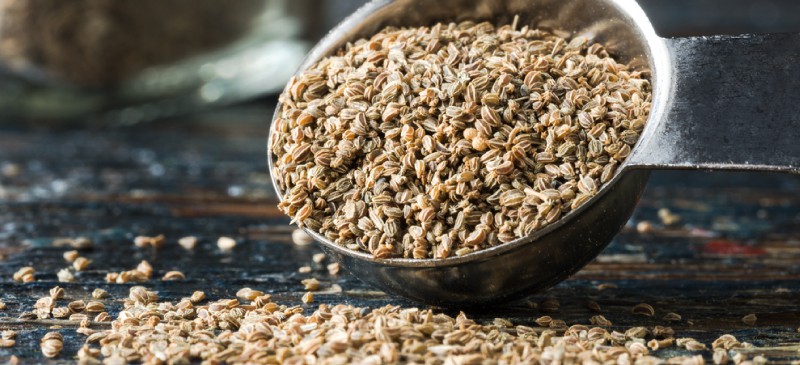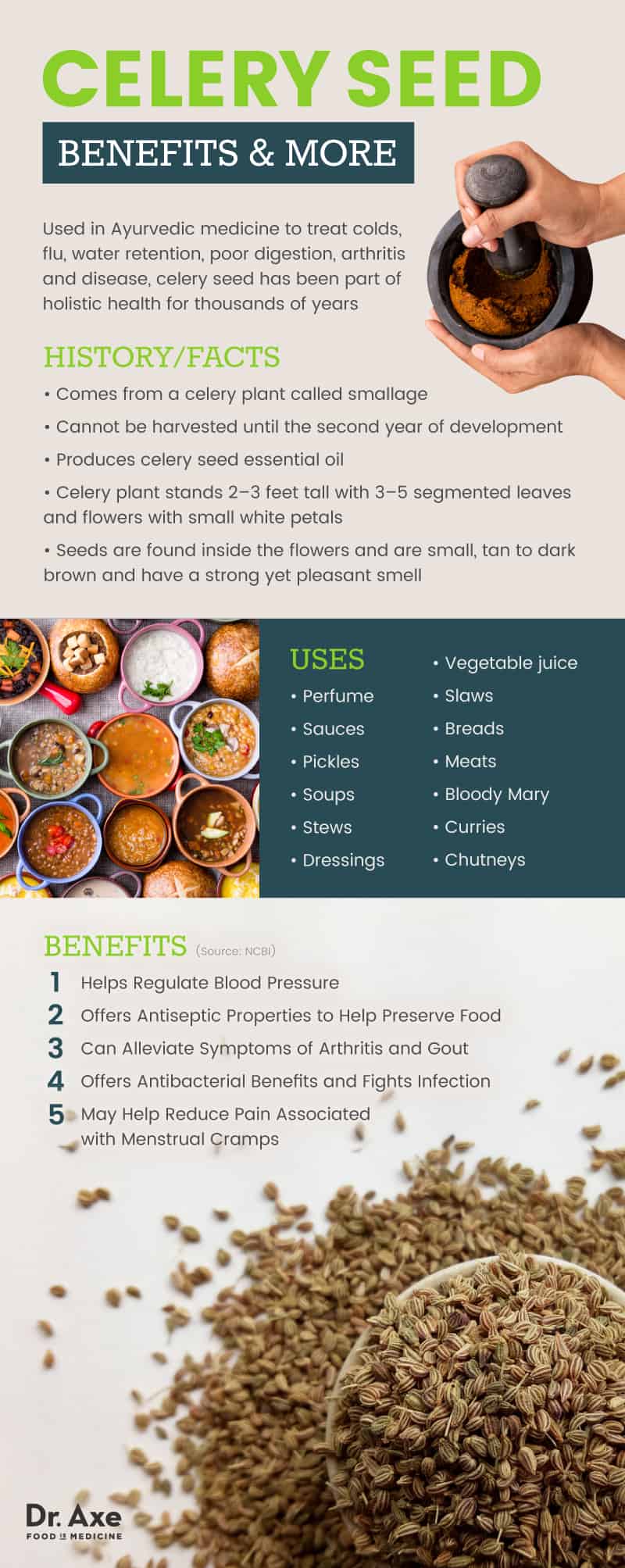This Dr. Axe content is medically reviewed or fact checked to ensure factually accurate information.
With strict editorial sourcing guidelines, we only link to academic research institutions, reputable media sites and, when research is available, medically peer-reviewed studies. Note that the numbers in parentheses (1, 2, etc.) are clickable links to these studies.
The information in our articles is NOT intended to replace a one-on-one relationship with a qualified health care professional and is not intended as medical advice.
This article is based on scientific evidence, written by experts and fact checked by our trained editorial staff. Note that the numbers in parentheses (1, 2, etc.) are clickable links to medically peer-reviewed studies.
Our team includes licensed nutritionists and dietitians, certified health education specialists, as well as certified strength and conditioning specialists, personal trainers and corrective exercise specialists. Our team aims to be not only thorough with its research, but also objective and unbiased.
The information in our articles is NOT intended to replace a one-on-one relationship with a qualified health care professional and is not intended as medical advice.
Can You Eat Celery Seed? Top 5 Celery Seed Benefits
April 4, 2018

Used in Ayurvedic medicine to treat colds, flu, water retention, poor digestion, arthritis and disease, celery seed has been part of holistic health for thousands of years. What is it used for today? It’s commonly used to help the body eliminate water through urine, treat arthritis and gout, reduce menstrual cramps, decrease inflammation, and lower blood pressure.
This tiny miracle seed comes straight from a celery plant called smallage but cannot be harvested until the second year of development. The celery plant produces a valuable celery seed essential oil, which is often used in the perfume industry — and which also contains a powerful chemical compound called apiole. Celery seeds are well-known in cooking as a spice, both whole and ground, which do more than just add flavor to dishes — they also have amazing effects on health.
What Is Celery Seed?
Of course, you can’t quite talk about the history of celery seed without a mention of celery. Celery (Apium graveolens) is thought to be the same plant as selinon, which was mentioned in Homer’s “Odyssey” in about 850 B.C. For us, it comes from the French celeri. Once called wild celery or smallage, it grows in wet places throughout Europe, the Mediterranean, Asia Minor, the Caucasus and southeastward toward the Himalayas. It is believed to have come from the Mediterranean area and is noted in Chinese writings after Christ.
Smallage (Apium graveolens) is actually a member of a large family of plants commonly called the carrot or parsley family (Umbelliferae or Apiaceae). Additionally, the eponymous carrot and parsley, dill, coriander, fennel and parsnip come from this family. The celery seed that we cook with is harvested from this type of celery and is mostly produced in Europe and India, with some in California.
Benefits
1. Helps Regulate Blood Pressure
According to a study conducted at Mashhad University of Medical Sciences in Iran performed on rats, the effects of different celery seed extracts on blood pressure may offer positive results.
In the study, blood pressure and heart rate were monitored on rat subjects that were administered celery seed extracts. The results indicate that the celery seed extract helped lower blood pressure. It also increased heart rate in hypertensive rats. Ultimately, researchers concluded that celery seed extract offers antihypertensive properties and therefore could benefit those struggling with blood pressure regulation. (1)
2. Offers Antiseptic Properties to Help Preserve Food
If an all-natural preservative exists, why not use it in instead of unhealthy options? Celery seed may be the perfect answer. India is one country that knows this all too well since people in India have been using this spice, among others, for hundreds, if not thousands, of years to preserve food.
The University College of Science’s Department of Biochemistry in India analyzed 35 common Indian spices. Among the spices researchers surveyed were celery, clove, cinnamon, bishop’s weed, chilli, horseradish, cumin, tamarind, black cumin, pomegranate seeds, nutmeg, garlic, onion and tejpat.
What researchers found was that these common Indian spices “have potent antimicrobial activities against the test organisms Bacillus subtilis (ATCC 6633), Escherichia coli (ATCC 10536) and Saccharomyces cerevisiae (ATCC 9763). The results also establish the traditional use of spices as food preservatives, disinfectants and antiseptics.” (2)
3. Can Alleviate Symptoms of Arthritis and Gout
The focus of a study out of Australia was to establish if the use of functional medicine, such as a nutraceutical, could help reduce inflammation associated with arthritis and gout. Indian celery seed extract was administered to rats and combined with the New Zealand green-lipped mussel. The results found that it was useful in reducing the inflammation in those rats with arthritis and gout. (3)
According to another study published in Progress in Drug Research, celery seed extract was found to be as effective as ibuprofen and aspirin in reducing inflammation-causing arthritis. Additionally, the study believes that celery seed is a positive option since it does not seem to interact with any existing drugs; therefore, it may be a great choice of therapy for many inflammatory-related diseases. (4)
4. Offers Antibacterial Benefits and Fights Infection
Celery seeds, scientifically known as Apium graveolens, have been used for hundred of years due to their antibacterial benefits. Researchers from Sheffield Hallam University’s Biomedical Research Centre in the U.K. examined “a crude alcoholic extract of celery seeds” to test its effects against H. pylori and other bacteria. These lab results showed the extract exhibited potent antibacterial effects, leading researchers to conclude it “may be suitable for further investigation as a potent agent for treating H. pylori infections.” (5)
5. May Help Reduce Pain Associated with Menstrual Cramps
Celery seed may help with muscle spasms and PMS symptoms, such as menstrual cramps. Some research indicates that celery seed, anise and saffron may help reduce pain and length of discomfort during menstruation. (6)
A randomized, double-blind, placebo-controlled study published in the Journal of Midwifery & Women’s Health examined the effects of an herbal drug containing celery seed, saffron and anise extracts compared to mefenamic acid and a control on dysmenorrhea, a condition that results in painful menstrual cramps.
There were 180 female students from Isfahan University aged 18–27 who participated. They were divided randomly into either the herbal drug group, mefenamic acid group or placebo group. After examining the results after two to three months, it was concluded that both mefenamic and the herbal drug “effectively relieved menstrual pain as compared with the placebo,” while the group treated with the saffron/celery seed/anise extract reduced pain significantly more than the mefenamic acid. (7)

Nutrition
One tablespoon (about six grams) of celery seed contains about:
- 25.5 calories
- 2.7 grams carbohydrates
- 1.2 grams protein
- 1.6 grams fat
- 0.8 gram fiber
- 0.5 milligram manganese (25 percent DV)
- 2.9 milligrams iron (16 percent DV)
- 115 milligrams calcium (11 percent DV)
- 28.6 milligrams magnesium (7 percent DV)
- 35.6 milligrams phosphorus (4 percent DV)
- 0.1 milligram copper (4 percent DV)
- 0.1 milligram vitamin B6 (3 percent DV)
- 91 milligrams potassium (3 percent DV)
- 0.5 milligram zinc (3 percent DV)
Celery seed also contains some vitamin C, niacin and selenium.
Where to Find and How to Use
You can find celery seed online or at most any grocer. Going organic is important to ensure the best quality.
The celery plant is slender and stands about two to three feet tall with three to five segmented leaves and flowers with small white petals. The seeds are found inside the flowers and are small, tan to dark brown and have a strong yet pleasant smell.
As noted, celery seed is commonly used in cooking. It is an ingredient in lots of dishes from sauces to pickles. You can eat celery seed, but for some people, it may cause an allergic reaction and is not advisable for anyone who is pregnant or nursing. If an allergy is not a concern, it is an amazing option for numerous dishes, sauces, soups, stews and for making dill pickles.
Popular in fresh tomato and vegetable juices, soups and stews, pickles, dressings, slaws, breads and even meats, such as salamis and corned beef, celery seed is a great option to add some deliciously distinctive flavor. Of course, it has forever been popular in the Bloody Mary cocktail. It can also be added to its cousin, celery juice.
Curries, pickles and chutneys are popular foods with the North Indians and Bengalis containing celery seed. A blend using turmeric, sage, cumin, ginger and celery makes for a great seasoning on chicken as well.
Precautions and Side Effects
Are celery seeds safe to eat? For most, yes, but did you know that they are not far behind the sensitivity often caused by peanuts? Celery can caused some fairly severe allergic reactions so take caution if you think you may have a sensitivity. For those who could be affected, it may cause potentially fatal anaphylactic shock.
Celery root, or celeriac, may contain more allergens than the stalk, but the seeds contain the highest levels of allergen content. Also, an allergic reaction could be triggered by eating foods that have been processed with machines that have previously processed celery. This seems to be a bigger problem in areas that produce celery seed, such as Central Europe, and they are required to include this information on their labels. (11)
If you are pregnant or nursing, take extra precautions. While celery is not bad for you, some parts, such as the seed, may be. Stay away from celery seeds; they can lead to uterine bleeding and possibly contractions sooner than you desire.
Final Thoughts
- Used in Ayurvedic medicine to treat colds, flu, water retention, poor digestion, arthritis and disease, celery seed has been part of holistic health for thousands of years.
- Research shows that celery seed benefits include helping regulate blood pressure, providing antiseptic properties to help preserve food, alleviating symptoms of arthritis and gout, combating bacteria and infection, and potentially reducing pain associated with menstrual cramps.
- You can use celery seed in a variety ways, from perfume to a variety of dishes, but be aware that celery seeds can be highly allergic to certain people and should be avoided by pregnant women.










